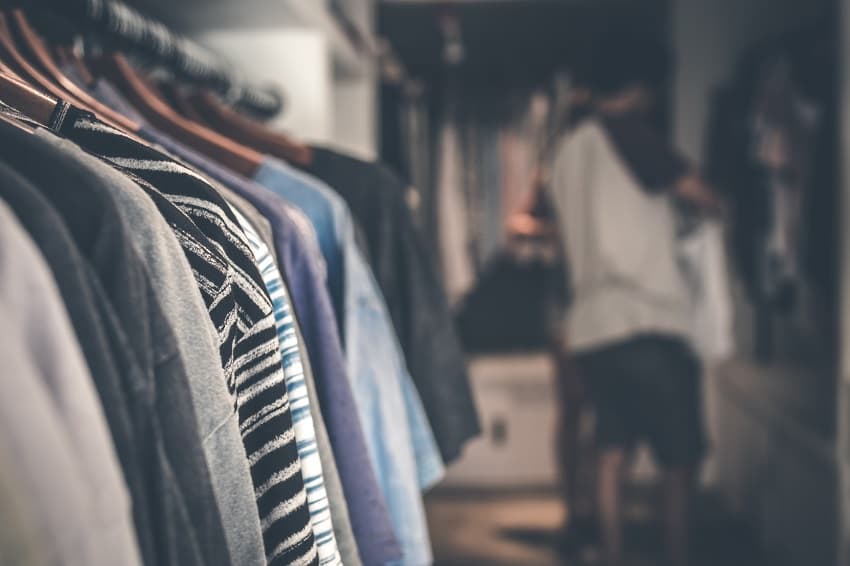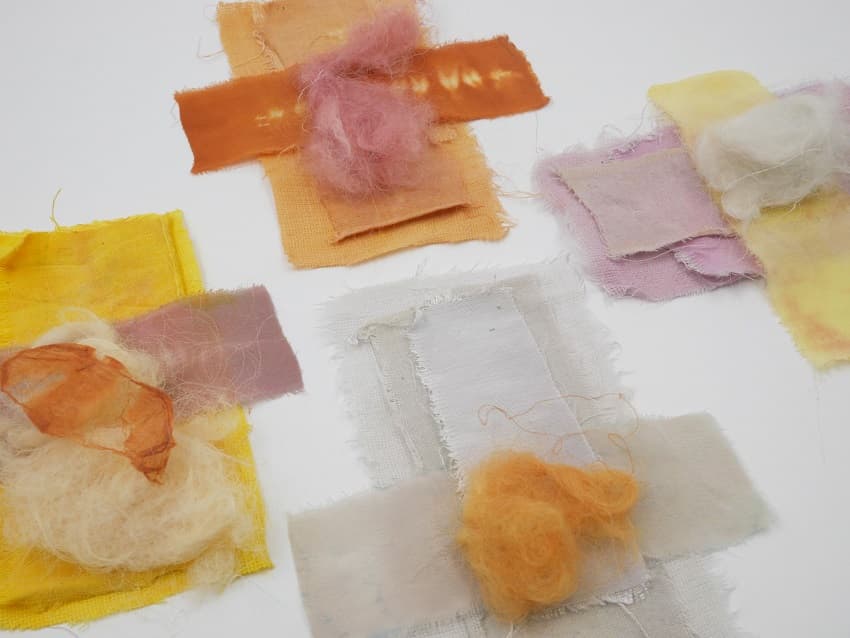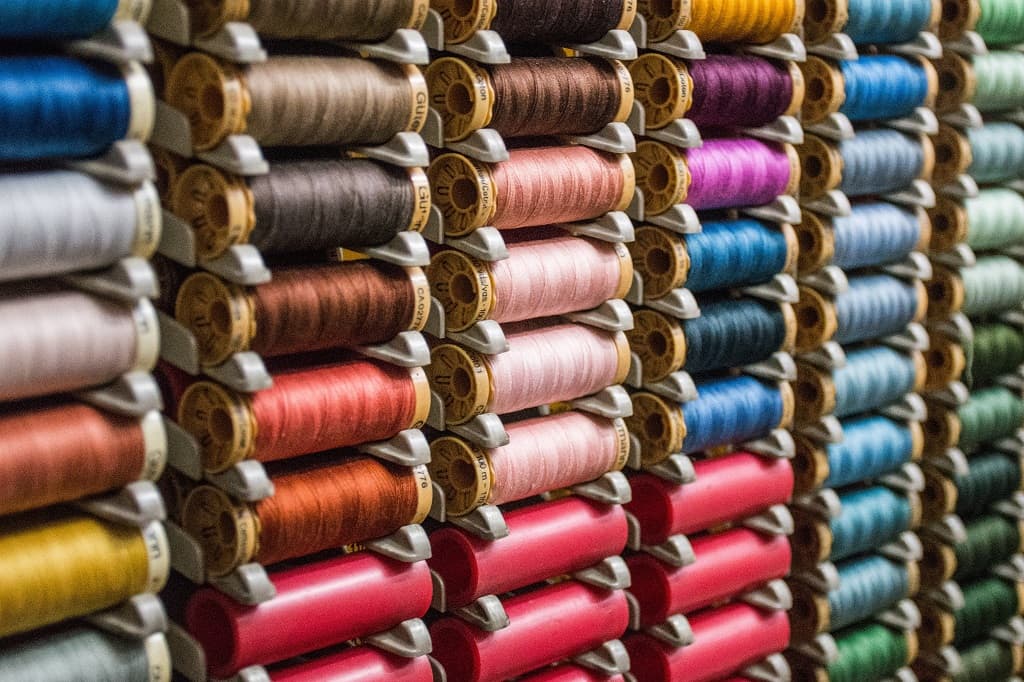We have yet to estimate the real damage from the COVID-19 crisis on the fashion industry, but it is already clear to all involved stakeholders that the entire international textile supply chain has been hit extremely hard, putting the survival of many fashion brands and retailers in question. It’s time to move up a new path, towards sustainable fashion solutions.
The fashion industry couldn’t have received a more severe wakeup call. Italy, the heart of the industry, and China, its hands, have been hit the hardest, sending shockwaves to the whole world.
Circular Economy
Nonetheless, this bleak moment of despair should serve as an opportunity to finally shake up the industry and bring an end to its old and regressive operations that today are still mostly geared towards linear production, taking too little or no measures at all against endangering workers and the environment, thus leaving an unbearable pollution footprint on the world.
It is time to start adopting Circular Economy and that includes striving towards a Zero Waste philosophy throughout the entire supply chain: from design – manufacturing – packaging – shipping – selling – consuming – recycling.
This means that fashion retailers need to start planning and building their collections based on the principles that everything that’s created needs to either be fully reusable at the end of its first lifecycle or produced based on Cradle2Cradle.
One of the best examples for a fashion retailer that went the road of total change towards a circular economy is C&A. In 2017 the discounter became a pioneer in the circular fashion industry, by introducing new a manufacturing strategy based on the following principles:
- Highest levels of Cradle2Cradle production certification (Gold & Platinum), using recycled water and renewable energies while ensuring the workers’ material health.
- The in-store take-back program, that currently runs in nine countries and a plan to further expand this year.
- Investment into new technology through the Fashion For Good accelerator platform aiming to scale up innovations and encourage their widespread adoption
The latest surveys show C&A‘s high scores among international brands in terms of their policy, traceability and actual uptake of sustainable cotton. All while being able to maintain the discounters’ highly competitive retail prices.

Investment
It is no secret that even at regular times fashion brands and retailers suffer from very tight revenue margins, yet, especially now when they face the question of total survival, they will have to pause and rethink how to include circular economy into their entire business philosophy.
This will require setting aside budgets for the development of new and advanced technologies with the ability to perform the abovementioned tasks and create new and versatile products.
Even though on a short term basis it could be challenging for smaller companies to allocate the funds to invest into innovation, yet, entities that don’t want to become the next “Kodak” of the fashion industry will have to look out for alternative ways to become part of the process to change the industry forever.
RELATED ARTICLES: Fast Fashion’s Detrimental Effect on the Environment |KRUSing into the future with a local angle for fashion |Are Biomaterial Innovations the Key to a Sustainable Future for Fashion? |Deal of the Week: The Push Towards Sustainable Fashion
Towards Sustainable Fashion: Establishing Urban Micro-Factories for Recycling
The more production has been moved to the far East over the last decades, the more have fashion managers and consumers disconnected from understanding how and under what conditions clothes are created.
Thanks to movements such as Fashion Revolution and their #whomademyclothes initiative, there is now more awareness about the catastrophic situation of garment workers, old and dangerous machines and overall lack of sustainable and innovative practices in the entire textile and garment production process.
On the other hand, Smart Cities has become a known and sought-after concept for authorities and organizations, aiming to bring new and smart technology to urban areas in order to improve the quality of life for all citizens. Sustainability has become an integral part of the smart city concept, yet there are still very limited truly circular textile recycling opportunities available in the cities that can guarantee that the submitted textiles won’t actually end up in landfills, burned or shipped to other countries.
This problem can be solved through the establishment of urban micro-factories. A micro-factory is a mini production center that can perform complicated tasks thanks to highly advanced machines that can significantly reduce operations’ steps and time.
Thus, a textile recycling micro-factory will be able to fully sort and dissemble garments into their original components and create fibers and fabrics for renewed use. Moreover, these smart recycling and upcycling micro-factories will serve as urban textile waste collecting points, easily accessible to all independent businesses that work with textiles.
It will also be open to citizens that are looking for sustainable private textile recycling options. Authorities could establish programs that would provide recycling incentives for citizens, the way it works with plastic and glass bottles. Ultimately, the micro-factories will help change awareness about garment production, use, and care.

Open Innovation
The trillion-dollar fashion and textile industry is lagging severely behind most other traditional industries and is heavily dependent on its productions far away from its consumers’ base. In addition, there has been no practice of knowledge and methodology sharing and even less so mutual search and development projects.
If there is something we can take out from the times of crisis, it’s that the fashion industry needs to urgently apply Open Innovation, a concept of knowledge and expertise exchange that leads to mutual new software development (Open Source).
This process allows the open flow of information and know-how between companies and managers for the sake of a greater and bigger impact we can all benefit from. What once has been perceived as business espionage, now needs to become the most accepted method to promote innovative ideas for a better, sustainable and circular future.
What is beautiful about this approach, is that it’s open to all businesses, no matter their size or market share. Sustainable fashion solutions are the future.
In the picture: A wide variety of colors for clothes’ fabric. Photo Credit: Unsplash
Editor’s Note: The opinions expressed here by Impakter.com columnists are their own, not those of Impakter.com











